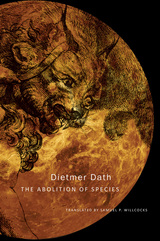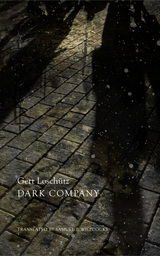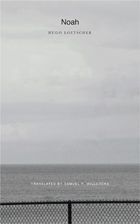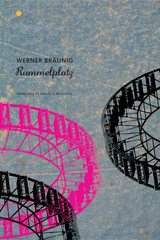
Cyrus the Lion sends the wolf Dmitri Stepanovich on a diplomatic mission, and in the course of his journey he discovers truths about natural history, war, and politics for which he was unprepared. The subsequent war that breaks out in The Abolition of Species will come to span three planets and thousands of years—encompassing treachery and massacres, music and mathematics, savagery and decadence, as well as the terraformation of Mars and Venus and the manipulation of time itself. By turns grandiose, horrific, erotic, scathing, and visionary, The Abolition of Species is a tale of love and war after the fall of man and an epic meditation on the theory of evolution unlike any other.



Rummelplatz, translated here by Samuel P. Willcocks, focuses on a notorious East German uranium mine, run by the Soviets and supplying the brotherland’s nuclear program. Veterans, fortune seekers, and outsiders with tenuous family ties like narrator Peter Loose flock to the well-paying mine, but soon find their new lives bleak. Safety provisions are almost nonexistent and tools are not adequately supplied. The only outlets for workers are the bars and fairgrounds where copious amounts of alcohol are consumed and brawls quickly ensue. In Rummelplatz, Bräunig paints his characters as intrinsically human and treats the death of each worker, no matter how poor, as a great tragedy. Bräunig occupies a cultlike status in Germany, and this new translation of his masterpiece is an excellent introduction for English-language readers.
Praise for the German edition
“One of the best novels of postwar Germany. . . . The narrative force and the emotional punch are sensational.”—Die Zeit
“An event in literary history and one ‘helluva’ novel.”—Der Spiegel

Along the way, we meet legendary singers whose names are still known to the devotees of dhrupad: the grand old Pandit Ram Chatur Mallik, the pious and inspiring Pandit Vidur Mallik, and both the masters and the humbler musicians and traveling players who bring music to the fields of Bihar, across India, and beyond. Singers Die Twice is the inspiring story of a master musician in the world that he loves.
READERS
Browse our collection.
PUBLISHERS
See BiblioVault's publisher services.
STUDENT SERVICES
Files for college accessibility offices.
UChicago Accessibility Resources
home | accessibility | search | about | contact us
BiblioVault ® 2001 - 2024
The University of Chicago Press









